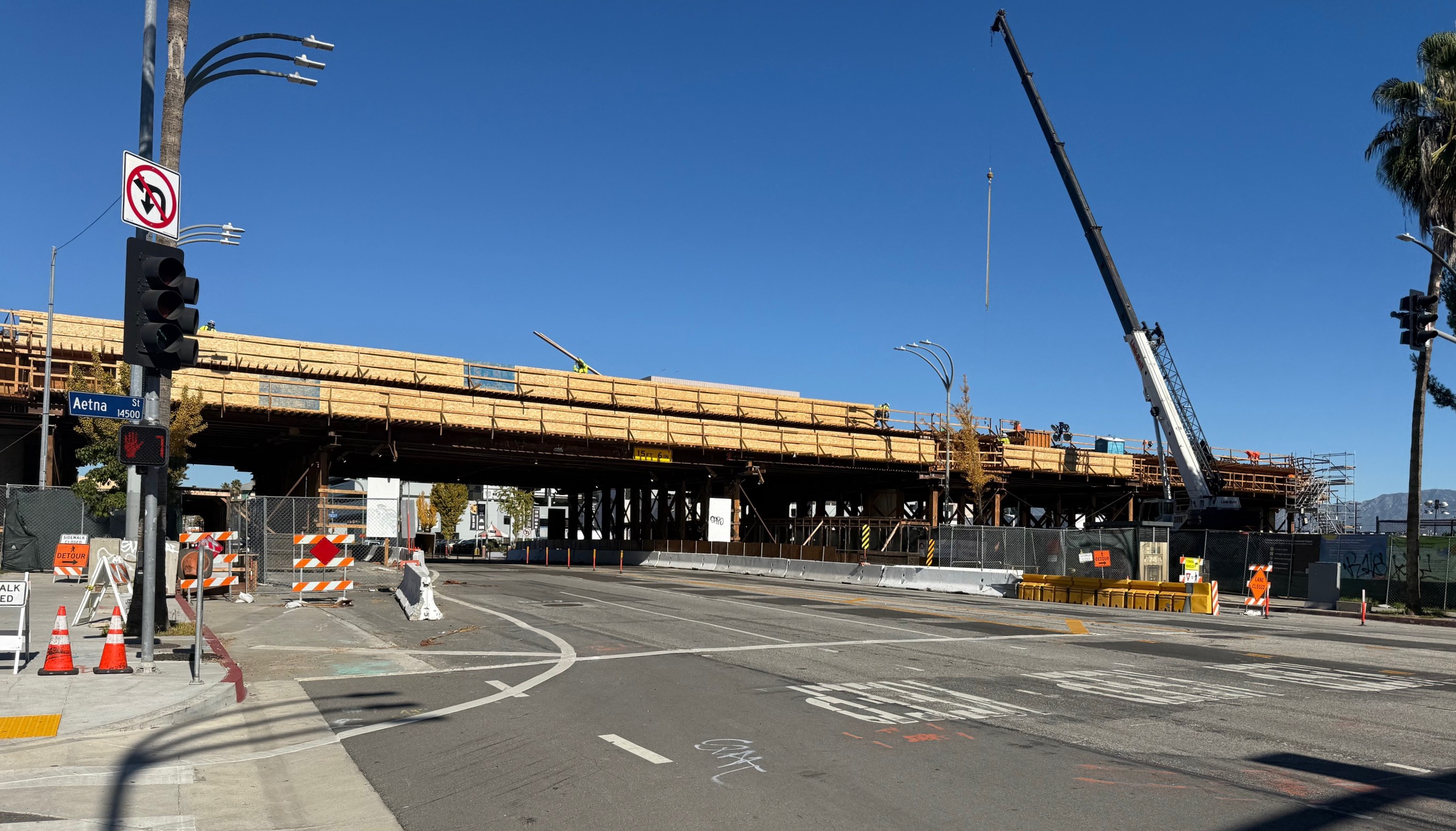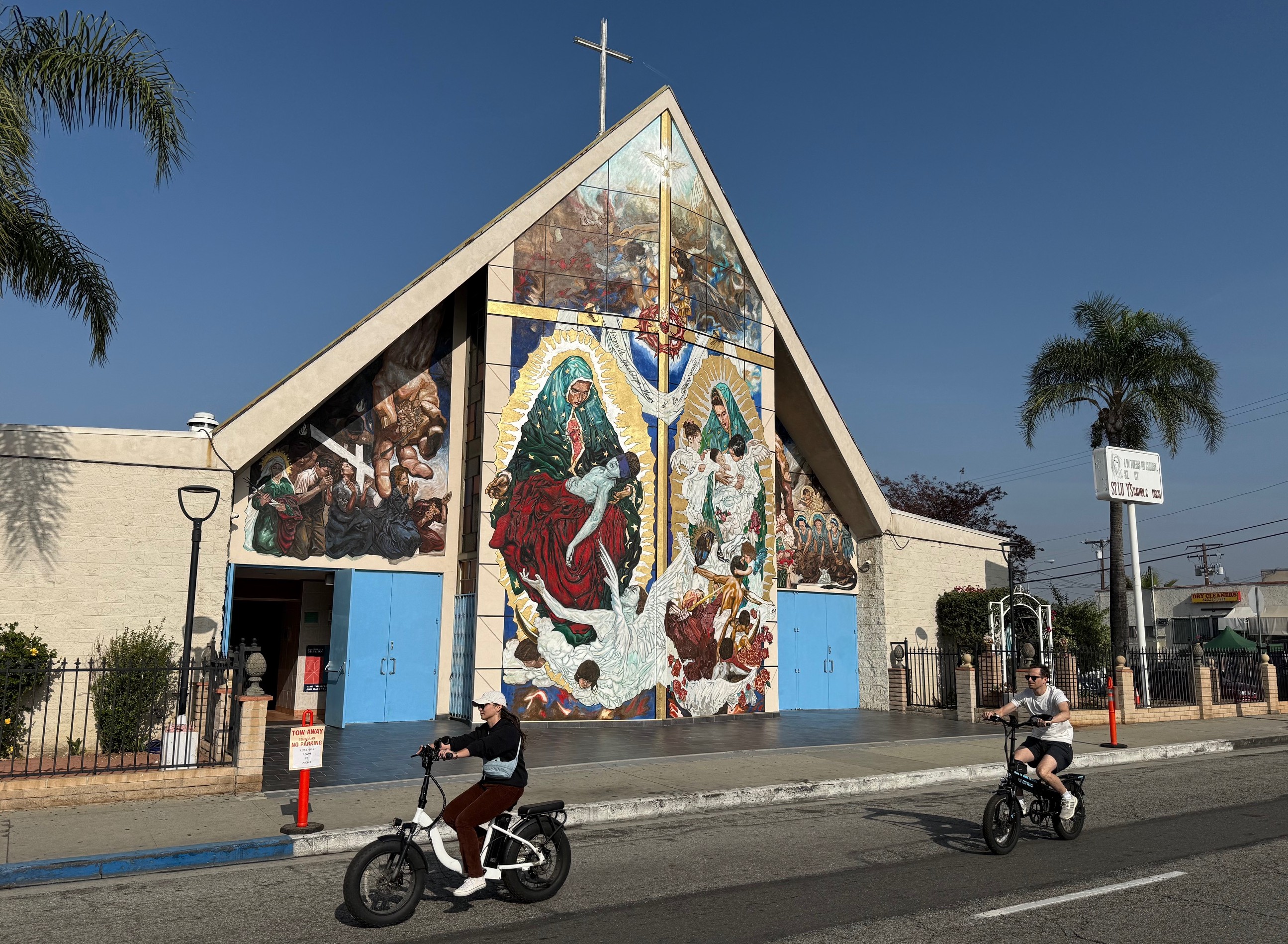In the end, it really wasn't about David Byrne.
Even though it was billed as An Evening With David Byrne, anyone who attended last Friday's panel discussion at the Aratani/Japan American Theater in Little Tokyo expecting rock star insights from the former Talking Head and current Bicycle Diaries author would have been disappointed.
Clearly, though, that wasn't what the evening was about.
Instead of a delivering a sermon on bikes and livability, he was here to start a conversation. And rather than using his celebrity to get people to listen to him, he used it to get us to listen to people we should have been listening to all along.
Which isn't to say that he wasn't entertaining, or that he didn't manage to make his key points, which was that livable cities require effective planning and public spaces that allow people to interact with one another. It also doesn't mean that he didn't have a book to sell, autographed copies of which flew off the sales tables in the lobby after the show.
However, after a brief initial presentation, Byrne stepped aside and let the evening's real stars - UCLA urban planning professor Donald Shoup, Michelle Mowery, Senior Bicycle Coordinator for the Los Angeles Department of Transportation, and cycling activist Jimmy Lizama, co-founder of the Bicycle Kitchen - take center stage.
The role of bikes in a more livable world
Byrne kicked things off with a series of slides showing how the futurist urban plans of the early 20th Century led to today's impersonal concrete-lined streets, noting that people don't fit into modern urban design. "This is pathetic, the way cities treat their citizens." He also talked about the unique view of urban life offered from the saddle of a bike, and offered slides of bike infrastructure - good and bad - from around the world.
Introduced as a "parking rock star" - which he noted isn't the same as a real rock star - Donald Shoup offered an amusing look at the wasted space and high costs required to park the endless parade cars that pass through our cities every day. He went on to discuss the problem of drivers endlessly circling city streets looking for underpriced curbside parking, rather than pay market prices; as he put it, "drivers cruising for parking really are on a road to nowhere." He noted how bikes can help reduce these problems, and looked at bicycling infrastructure that "works," including physically separated bike lanes, contraflow lanes and bicycle boulevards - adding that you could build a dozen bike boulevards for about what it cost to build two recent roundabout in Westwood.
As an audience member said, Jimmy Lizama was the real rock star of the evening, drawing a huge round of applause simply for taking the stage. In a rapid-fire stream-of-consciousness style that made note taking almost impossible, he told the story of his transformation from a non-rider to bike commuter to bike messenger to one of the area's most respected bike activists. "The L.A. I know and love is bicycle and pedestrian friendly," he said, and later added, "I like the freeways, I think they'd make great bicycle paths."
Respect for someone local cyclists thought they knew
Perhaps the biggest surprise of the evening was the grudging respect earned by Mowery.
As LADOT's Senior Bicycle Coordinator for the last 15 years, Michele Mowery is the government official L.A. cyclists love to hate - a Fully Assimilated Bureaucratician, as one local bike writer recently put it, and for many riders, the public face of LADOT's perceived failure in providing effective cycling infrastructure in the city.
Yet her brief presentation suggested that image could be the result of forces beyond her control, from a lack of funding to a bureaucracy that seldom supports cycling. Improving bikeways doesn't just happen, according to Mowery; it takes technical support, funding and the political will to make changes. "We need an educated and excited constituency to speak to elected officials on the local, state and federal levels," she said.
She also positioned the proposed new bike plan, not as an end in itself, but as something to revisit and build on for the future. The key, she said, is finding a way to communicate to motorists and authorities that we have equal rights to the road. Cyclists need to write letters - not just emails, but actual hard copy letters that can be passed around and shared - because elected officials don't hear from bicyclists often enough. "They need to hear from all of us."
News was also made during the question and answer period, when it was announced that plans are in motion for the city's first cyclovia - or cicLAvia, as the organizers put it - with a $25,000 grant from the California Endowment. In addition, it was announced that a $1.5 million grant has been awarded to build L.A.'s first bike station at the L.A. Convention Center downtown.
The panel was as part of the ALOUD series, presented by the Library Foundation of Los Angeles.







